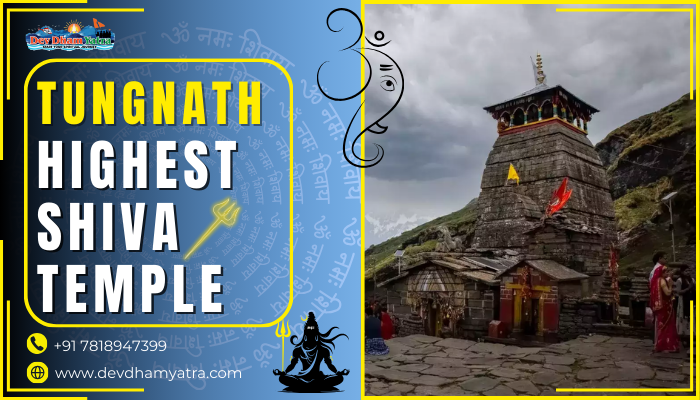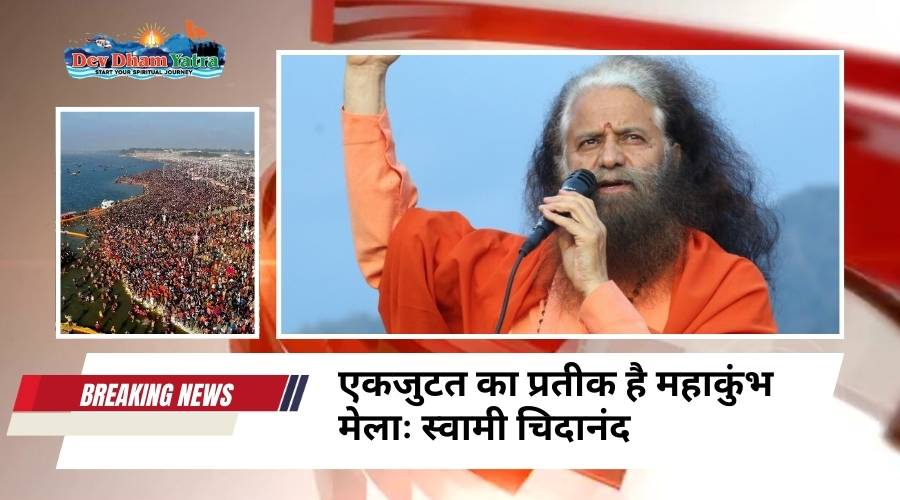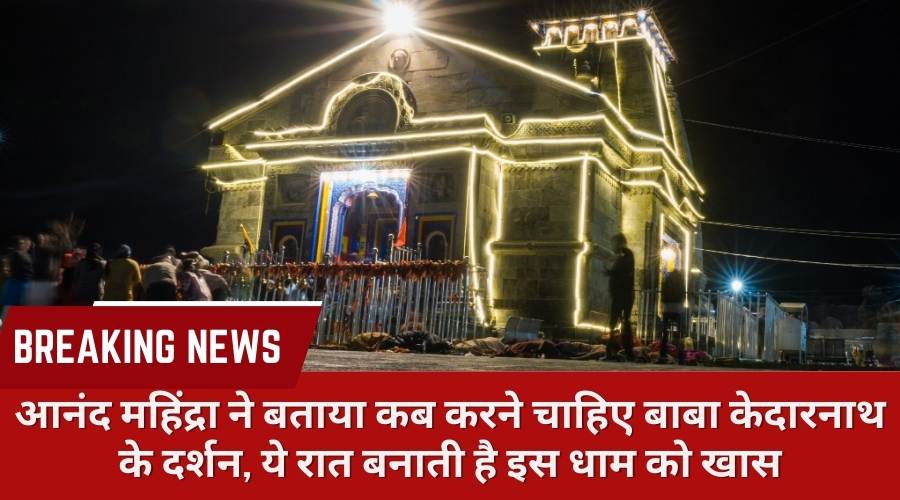Title – Peak of Devotion: Tungnath, Highest Shiva Temple

Description – Learn about the rich history of Tungnath Temple, one of the highest Shiva temples in the world. Explore its origins and significance. Click to uncover the ancient stories.

All about the highest Shiva temple: Tungnath Temple
Introduction to Tungnath Temple
Tungnath Temple, nestled in the lap of the Garhwal Himalayas, is a revered Hindu shrine dedicated to Lord Shiva. Perched at an altitude of 3,680 meters (12,073 feet), it is the Shiva temple in the world. This sacred site forms part of the Panch Kedar pilgrimage and is renowned for its spiritual ambiance and stunning natural beauty.
Geographical Location
Perched at an altitude of 3,680 meters (12,073 feet), highest Shiva Temple offers breathtaking views of the surrounding peaks. The temple is located in the Rudraprayag district of Uttarakhand, India, and forms part of the enchanting Chopta region, often referred to as the “Mini Switzerland of India.”
The Legend of the highest Shiva temple: Tungnath Temple
The Story of Ravana
Here is where, according to legend, the demon king Ravana from the Ramayana underwent extreme penance for Lord Shiva. Impressed by his devotion, Shiva appeared before Ravana, granting him boons that contributed to his immense power. This mythological connection adds a layer of mystique to highest Shiva temple, attracting devotees and history enthusiasts alike.
The Panch Kedar Legend
An other intriguing folklore connects Tungnath to the tale of Panch Kedar. After the Kurukshetra war, the Pandavas sought Lord Shiva’s forgiveness for killing their kin. Shiva transformed into a bull to escape them, vanished beneath the earth, and then reappeared at various locations throughout the Garhwal area. Highest Shiva temple is where his arms surfaced, thus making it a sacred site for followers of Hinduism.

Architecture of Tungnath Temple
Structural Design
The architectural style of Tungnath Temple is typical of North Indian temple architecture, with a distinct Garhwali influence. The temple is small but beautifully constructed with stone, featuring intricate carvings that depict various deities and mythological scenes.
Symbolic Elements
Each element of Tungnath Temple holds symbolic meaning. The sanctum sanctorum houses the swayambhu (self-manifested) Shiva lingam, which is worshipped by devotees. The mandapa (hall) is adorned with statues and engravings that narrate stories from Hindu scriptures, adding a layer of spiritual education to the visitor’s experience.
Natural Beauty Around Tungnath
Located just a short distance from highest Shiva Temple, Deoria Tal is a stunning high-altitude lake that captivates visitors with its pristine beauty. This emerald-green lake, which is 8,000 feet (or 2,438 meters) above sea level, is encircled by thick oak and rhododendron trees and provides a peaceful haven for nature enthusiasts.

Trekking to Tungnath
Trekking Routes
The trek to Tungnath starts from Chopta, a quaint village known as the “Mini Switzerland of India.” The trail is approximately 3.5 kilometers long and can be covered in about 3 to 4 hours. The path is well-marked and relatively easy, making it accessible even for novice trekkers.

Best Time to Visit
The summer months of April through November are ideal for visiting Tungnath because of the pleasant weather and well-maintained trails. The monsoon season brings with it torrential rains that make the trails dangerously slick. Even in the winter, the temple is blanketed in snow, making access challenging despite its beauty.
How to Reach Tungnath
Tungnath Driving and hiking are combined to get to Tungnath. The closest train station is at Haridwar, while the closest airport is Jolly Grant Airport in Dehradun. From these points, one can hire a taxi or take a bus to Chopta, the base for the highest Shiva temple trek. The trekking from Chopta to Tungnath is 3.5 kilometers, a moderate climb that offers stunning views and serene landscapes.


Tips for Trekkers
When planning a trip to highest Shiva temple, it’s essential to pack wisely. Important items to pack are warm clothes, cozy hiking shoes, a first aid kit, and enough water and food. Additionally, carrying a camera to capture the breathtaking landscapes and a guidebook for better understanding the area’s history and significance can enhance the travel experience. While Tungnath itself does not have accommodation facilities, the nearby areas like Chopta offer various options, ranging from budget guesthouses to comfortable hotels. These lodgings offer the bare minimum in amenities and make an ideal starting point for exploring the area.
Nearby Attractions
Chandrashila Peak
Just a short trek from Tungnath is Chandrashila Peak, standing at 4,000 meters. This summit offers a 360-degree view of the Himalayas and is a popular spot for trekkers seeking adventure and photographers looking to capture the stunning landscape.
Deoria Tal
Deoria Tal is a high-altitude lake located near Tungnath. It is famous for its crystal-clear waters that reflect the surrounding peaks. The trek to Deoria Tal is relatively easy and offers scenic beauty and tranquility, making it a perfect picnic spot.
FAQs
What is the best time to visit Tungnath Temple?
- The best time to visit Tungnath is from April to November, when the weather is pleasant and the trekking paths are clear.
How long does the trek to Tungnath Temple take?
- The trek from Chopta to Tungnath Temple is 3.5 kilometers and takes about 3 to 4 hours to complete.
Is Tungnath Temple accessible during winter?
- No, Tungnath Temple is usually inaccessible during winter due to heavy snowfall and harsh weather conditions.
What are the nearby attractions to Tungnath Temple?
- Nearby attractions include Chandrashila Peak, known for its panoramic views, and Deoria Tal, a scenic high-altitude lake.
What kind of wildlife can be seen around Tungnath?
- There is a wide variety of animals in the area surrounding Tungnath, such as musk deer, langurs, and several bird species.




















